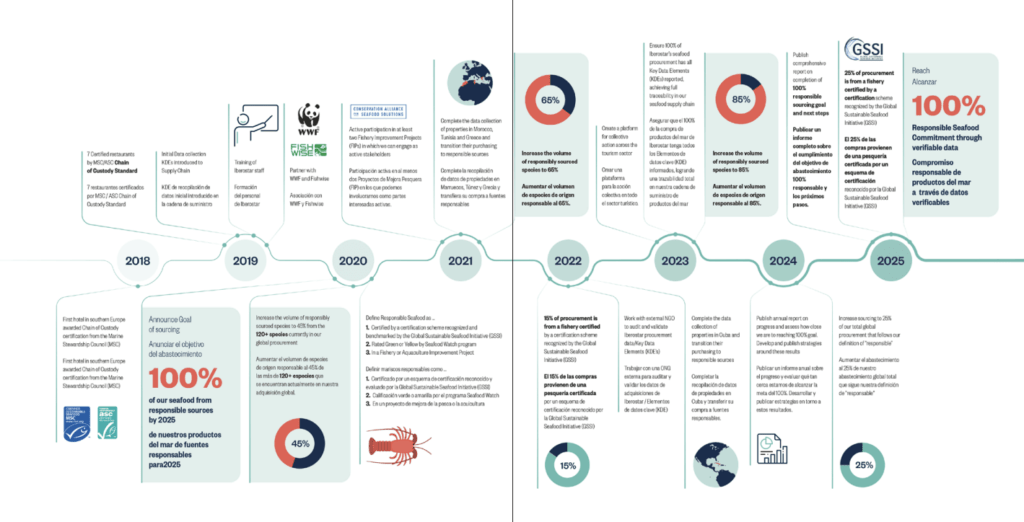These are just a couple of highlights of our comprehensive work on promoting the responsible consumption of seafood, view the rest in our 2021 Year in Review.

At Iberostar, we believe radical collaboration can provide incredible results, even in some of the most challenging years for tourism. 2020, amidst the global pandemic and the subsequent decrease in our procurement volume, provided an opportunity to collect data and remove/change species in a more manageable way. 2020 was the year we set the foundation for supporting our goals once hotel apertures and operations began. It was also the year we increased our focus on capacity building and education with our suppliers so they could better understand our responsible seafood goals and be better equipped to find products that met our commitment and prepare for hotel re-opening. It’s because of this groundwork that we were able to continue to work closely with our suppliers, operations and procurement teams to systematically identify opportunities for improvement, target products that met our expanded definition of “responsible” seafood and identify new areas to prioritize so we could reach our 65% goal while continuing to focus on high volume commodities.
100% responsible sourcing of seafood in Mexico in 2021
Mexico is not only one of our most popular destinations, but it is also one of the largest exporters of seafood products into the U.S. It has been the focus of improvement work in fisheries as U.S based consumers are increasingly demanding responsibly sourced seafood. Mexico is also home to a wide array of seafood options that allow us to showcase their diversity in our menus and elevate our client experience to savor these delicacies while we continue supporting improvements in these fisheries.
Achieving this bold goal in 2021 was not without its challenges. It required expediting data collection with existing providers and finding new references and products needed by our chefs that would meet our high-quality standards, enhance our menu offerings while remaining a cost-effective option that also met our commitment.

Reimagining responsible seafood in domestic markets
The sustainable seafood movement has traditionally focused on high-volume fisheries in global markets. Because of the geographies in which we operate and the importance of domestic fisheries and products in securing fishers’ livelihoods, we have to rethink how we define responsible seafood to be inclusive of these fisheries serving domestic markets that are not currently assessed. Therefore, it’s not cost-effective for them to launch traditional fisheries improvement projects or become certified.
The challenge for Iberostar, whose seafood portfolio expands over 128 species, is to be strategic in our approach and maximize the resources we have available to achieve our long-term objectives. Our focus hasbeen to develop partnerships that can support our work in-country and leverage existing initiatives to avoid duplicative efforts while creating a new pathway for improvement that supports Iberostar commitments. This work is in line with SDG14 (i.e,14.b) and supports the development (or existing) improvement pathways towards seafood sustainability which support local fishing practices and the communities that depend on them.
We invite you to learn more about our accomplishments in promoting responsible seafood consumption in 2021 by accessing our Year in Review.






